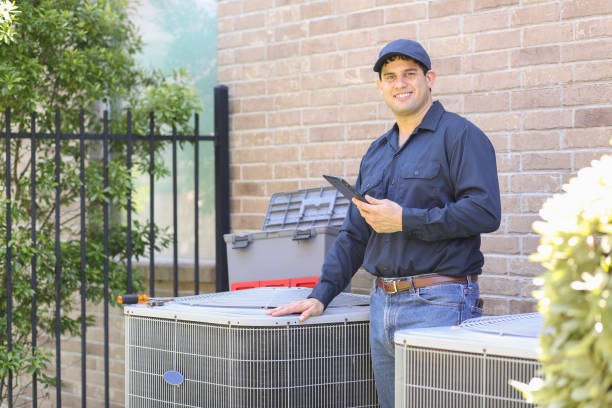When it comes to installing a new HVAC system, ensuring that everything is set up correctly is crucial for the system’s performance, energy efficiency, and longevity. An HVAC installation audit is an essential step to verify that the system is installed properly and complies with manufacturer specifications, building codes, and energy efficiency standards. This process helps identify potential issues early, saving you from costly repairs or inefficiencies in the future.
What is an HVAC Installation Audit?
An HVAC installation audit is a thorough inspection and evaluation of the entire installation process. It is conducted by a qualified technician or specialist who reviews the system’s setup, including all mechanical and electrical components, to ensure they are functioning as intended. The audit assesses various aspects such as airflow, refrigerant levels, insulation, ductwork, and thermostat calibration.

Why is an HVAC Installation Audit Important?
Maximizing Efficiency: A properly installed HVAC system runs more efficiently, consuming less energy and reducing your utility bills. The audit ensures that the system is optimized for the best performance, checking for potential issues such as improper refrigerant charge, blocked filters, or leaks in the ductwork.
Ensuring Safety: HVAC systems involve complex electrical and gas components that, if improperly installed, can pose safety risks. An audit checks for correct wiring, gas line installation, and combustion system performance to ensure that the system is safe for use.
Compliance with Standards: Many local building codes and manufacturer guidelines specify installation requirements. An HVAC installation audit ensures that these standards are met, preventing legal or warranty issues in the future.
Longer System Lifespan: Proper installation is the foundation of your HVAC system’s longevity. An audit ensures that the system is installed to minimize wear and tear, extending its useful life and preventing premature breakdowns.
Improved Comfort: An HVAC system that is installed correctly provides consistent, even heating or cooling throughout your home or office. An audit verifies that airflow is balanced and the system is performing at peak capacity.
Key Aspects of an HVAC Installation Audit
An HVAC installation audit involves a detailed evaluation of various aspects of the system to ensure optimal performance, safety, and efficiency. Key elements include checking the system design to verify it meets the building's heating and cooling requirements, ensuring proper sizing of the unit to prevent overwork or inefficiency. Ductwork inspection is crucial to ensure there are no leaks or blockages that can affect airflow and increase energy consumption. The audit also examines refrigerant levels, making sure they are correct to maintain efficient cooling and prevent system strain.
Air distribution is assessed to ensure even temperature distribution throughout the space, while electrical components are inspected for safety and functionality. Additionally, the audit verifies that the installation complies with local building codes and safety standards. By evaluating these factors, an HVAC audit identifies potential issues early, improving system efficiency, extending its lifespan, and reducing energy costs.
Conclusion
An HVAC installation audit is an essential step in ensuring that your new system operates efficiently, safely, and effectively. By identifying potential issues early, an audit helps prevent costly repairs and ensures your HVAC system provides maximum comfort, energy savings, and a longer lifespan. Whether you’re installing a new system or replacing an old one, having an HVAC installation audit performed is a smart investment that can save you money and hassle in the long run.